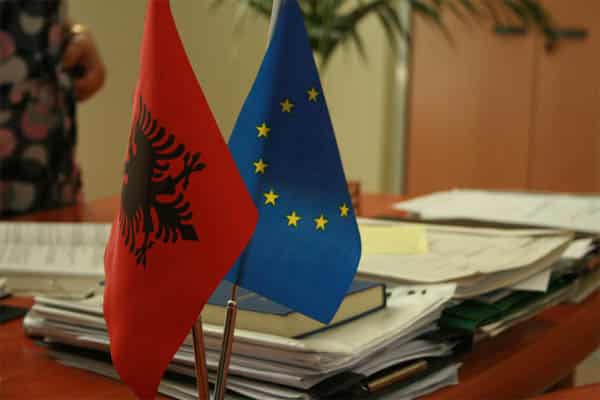
After having been rejected three times by the European Council, Albania has finally been granted candidate country status, a crucial step in its transition to democracy since 1991 and its aspiration to become a part of the EU. Although it is very likely that the small Western Balkans country will not join the EU until probably a decade into the future, as chapter negotiations and alignment with the acquis are long processes, this candidate status is a victory in itself. It is a symbol of recognition for the changes that Albania has had to make to join the Union. There is still much reform needed to be made, but this recognition is a good first step to boost confidence; confidence not only for the government, but also for Albanian citizens.
Reform is not exclusive to the rule of law or institutions. Albanian society is changing. The elections of June 2013 were a turning point in this process of change, being the first truly democratic and transparent ones to be held in the country. This protest vote was a symbol of a change in the mentality of voters, whereby they understood that their vote was not useless and could change things. Furthermore, a few months ago, young students protested in front of the Prime Minister’s Office, in Tirana against the government’s decision to ship to and store Syrian chemical weapons in the country. Albania had never seen such a massive peaceful protest. These are signs that the country is becoming, in an Albanian now-typical saying, more like “Europe”.
Interestingly, many do not know that Albania is in Europe. Of course, the country is quite small and rarely heard of, unless the topic is its criminal component or substantial migration abroad. This feeling of alienation from Europe has led to a situation where Albanians themselves see Europe as a foreign entity which they aspire to belong to. However, Albania shares the same history, and much of the same culture with Europe. Accession to the EU is a way for the country to get rid of its tumultuous past and centuries of occupation, and become a part of something it feels it belongs to rather than having to accept something imposed. What the EU sees as enlargement, Albania considers it a return to Europe.
In its statement granting the status to Albania, the European Council stressed the importance of the visa policy implementation and solving of unfounded asylum applications to reduce “migratory pressures on the EU”. Although it is natural that the EU is concerned about immigration with future enlargements, the risk is not that big as, for instance, UKIP has made it seem. It is true that Albania’s wealth and standard of living is much below the EU’s average, but a country with a population of three million should not be a concern for old EU member states. If anything, Albania wants to join the EU, in a way, to prevent more of its citizens from going abroad. How?
We Albanians want to be in the EU to gather more opportunities for our country and ourselves. For example, a major problem in the country is education, especially at university level, to the point where high school graduates are increasingly leaving the country to study abroad. Many of them later end up working abroad and not returning to Albania, causing “brain drain”. But, university fees abroad are much higher for non-EU nationals, and therefore, only those who can afford it or who are able to obtain a scholarship can study abroad. Joining the EU would change that. It would not increase migration to old member states; instead, it would create an opportunity for Albanians to study in good universities without such a high financial strain, but with the added incentive to return to their home country, as Albania would enjoy the benefits of being a part of the EU such as higher investment, growth, and employment rates. How do we know that this would happen? There is evidence that there has been an increase in living standards in the countries of the CEEC enlargement of 2004 and 2007, as well as some degree of income convergence with old member states.
What would the EU want from Albania? The small country’s euroenthusiasm could bring back a much-needed new wave of faith towards the EU. A joke says that Albanians trust the EU more than they trust God. Moreover, Albania has proven to be a successful example of a multireligious country, where Muslims, Catholics and Orthodox peacefully coexist, a major feat for a Balkans country. Overall, Albania will do more good than harm to the EU, and this status has arrived at a time when a pat in the back was most needed.

